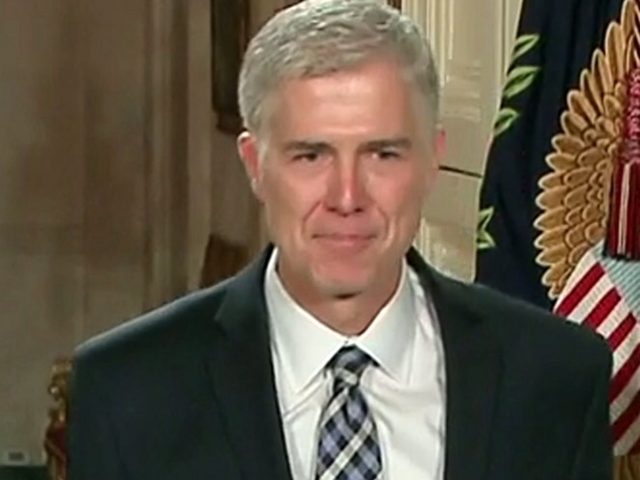 President Donald Trump has pledged to “open up” the nation’s libel laws so he can sue the New York Times and Washington Post and “win lots of money.”
President Donald Trump has pledged to “open up” the nation’s libel laws so he can sue the New York Times and Washington Post and “win lots of money.”
But Trump’s pick for the Supreme Court, Judge Neil Gorsuch of the Tenth Circuit Court of Appeals, appears unlikely to destroy the well-established First Amendment protections for the media, at least based on his court decisions.
Judge Gorsuch has applied the substantial truth rule to protect a television network.
In Bustos v. A & E Networks, Judge Gorsuch wrote the majority opinion dismissing a prisoner’s libel claim that A&E Networks falsely implied that the prisoner was member of Aryan Brotherhood, a white supremacist prison gang and criminal enterprise.
Judge Gorsuch ruled in the 2011 case that even if the prisoner was technically right that he was not a member of the Aryan Brotherhood, the broadcast was protected by the substantial truth doctrine because the prisoner was associate of that gang and a gang co-conspirator, which is essentially the same – as far as the broader audience is concerned – to being a member of the gang.
“Can you win damages in a defamation suit for being called a member of the Aryan Brotherhood prison gang on cable television when, as it happens, you have merely conspired with the Brotherhood in a criminal enterprise?”, Judge Gorsuch wrote.
“The answer is no,” Judge Gorsuch ruled. “While the statement may cause you a world of trouble, while it may not be precisely true, it is substantially true. And that is enough to call an end to this litigation as a matter of law.”
Judge Gorsuch has dismissed privacy claims against the media
Judge Gorsuch also joined a majority opinion in Alvarado v. KOB-TV, which dismissed claims by two undercover cops against a local TV station. The police officers claimed that the station violated their privacy and caused them emotional distress by reporting that they were under investigation for alleged sexual assault and revealing their identities. The officers were later cleared.
The Tenth Circuit ruled in the 2007 case that the news report about the investigation of the officers for alleged sexual assault was a matter of public concern, which trumped the officers’ privacy and emotional distress claims.
Similarly, in Anderson v. Suiters, Judge Gorsuch joined a 2007 Tenth Circuit decision dismissing privacy claims against a TV station for broadcasting an excerpt of a videotape that briefly showed the feet and calves of a woman as she was allegedly sexually assaulted by her husband.
The court ruled that the station’s airing of the tape – which the woman had given to police to seek prosecution of her husband – did not constitute publication of private facts because the tape was being reviewed by police and “substantially relevant to the alleged criminal activities of [the woman’s] husband, a matter of legitimate public concern.”
The court cautioned that it was not giving the media a blanket right to broadcast sensitive tapes, but in this instance, the TV aired only an excerpt of the tape that did not show the woman’s face or reveal her identity.
The Tenth Circuit also rejected expert testimony on the issue of the newsworthiness of the broadcast, saying that was a legal issue to be decided by the court, not an expert.
So if Judge Gorsuch’s previous cases are any indication, he is not likely to try to “open up” the libel laws — whatever that means.
A version of this article was first published on Monday, and has since been updated now that Trump made his announcement.
Have a tip we should know? [email protected]